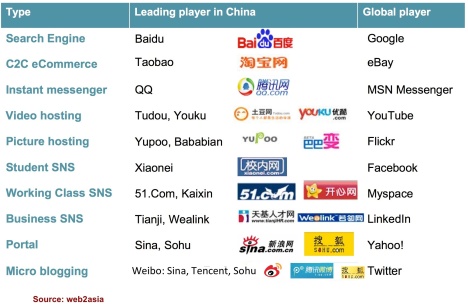The Birth of a New Internet
China’s Great Firewall is often criticized as an attempt by the Chinese government to censor the internet, and to brainwash its people. Western journalists are often satisfied with this answer, and fail to look at the actual effect that it has had on China. China’s internet has become a parallel universe of sorts, where instead of Youtube there is Youku, instead of Google there is Baidu, and instead of Amazon there is Taobao.
However, not everything over the Great Firewall can be compared to what we have in America. Third party mobile payment apps like AliPay and WeChat Pay are making cash obsolete in China. When someone goes out to eat there, more often than not they will scan a QR code using one of these apps, and the money will be taken right out of their bank accounts. Yes, in some ways, this ‘developing’ country is more advanced than us.
The Chinese internet is massive in size, with a total market cap of 7.24 trillion yuan (1.1 trillion dollars), making it second only to America. Not only is it a massive industry, servicing the world’s largest market, but thanks to the Great Firewall, the profits are 100% Chinese.

What Companies Lie Beyond the Great Firewall?
There are essentially two major players vying for control over the Chinese web: Alibaba (BABA) and Tencent (TCEHY). With a combined market cap of close to 1 trillion they account for the vast majority of China’s booming internet.
Alibaba:
Alibaba has its roots in E-Commerce, with alibaba.com, a business to business E-commerce platform that, as of 2017, is the largest B2B E-Commerce site in the world. On top of this they own the previously mentioned taobao.com, and AliExpress, e-Commerce for wholesale buyers. They dominate e-commerce in not only China, but the entire world.
Alibaba also created ‘AliPay’ a third party online payment platform with no transaction fees, the first of its kind to be used on a mass scale. This app has, since its genesis in 2004, added features to allow users to pay for their utilities and rent, take out loans, buy money market funds, and invest in wealth management products. On top of this they own Yahoo! China, and Alibaba pictures. They also have an 18% stake in Youku, and a 31.5% stake in Weibo, China’s Twitter, the second most widely used social media website in China.













Leave A Comment